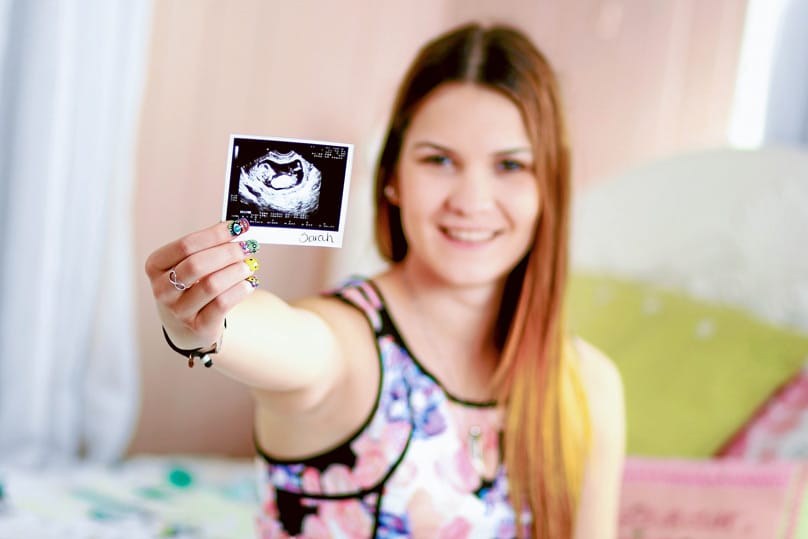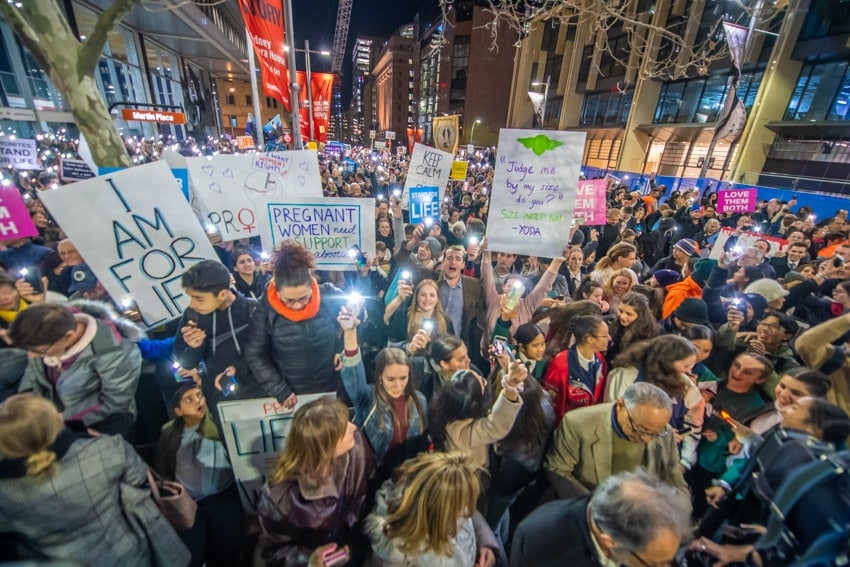
If some of the politicians who voted in favour of the abortion-till-birth bill rightly get booted from office at the next election, perhaps they could gain employment as contortionists, such has been the display of twisting themselves and their logic into a position from which they can support Zoe’s Law.
For those unfamiliar with the story, Zoe’s Law is a law that has been proposed for about 10 years. It is named for Zoe, the unborn daughter of Brodie Donegan, who was killed when a driver under the influence of drugs swerved off the road and hit Brodie, who was taking a walk. Brodie survived but Zoe didn’t.
The driver was charged with the harm done to Brodie, but not for the death of Zoe. At the time (and still to today,) the NSW Crimes Act views the death of an unborn child as “grievous bodily harm” against the mother, even if the mother suffers no other injury.
Zoe’s Law, first introduced by the Reverend Fred Nile but now proposed to be tabled as a government bill, likely bearing the Premier’s name, would change that.
Once a child reaches a certain gestational age (mooted to be 20 weeks), it would recognise the death of the unborn child as a crime of its own.
The penalty would be the same as it is now – so there would be no change in punishment that corresponds to the law recognising the child’s death – the separate criminal offence would largely be a symbolic gesture.
According to the reports, Premier Gladys Berejiklian had been consulting Coalition MPs over the issue in the preceding fortnight in an attempt to drum up support to have Zoe’s Law passed if the abortion bill goes through.
Forgive my bluntness, but the Premier, and any member who voted in favour of the abortion-till-birth bill and who intends to also vote for Zoe’s Law is a hypocrite.
Zoe’s Law recognises that the unborn child is a separate, living being to its mother, and that the ending of that life is a wrong in and of itself.
The abortion bill that the 59 Lower House members voted for says the exact opposite. It says that the unborn child, right up to and including the day of its birth, is part of the mother’s body and can be dispensed with at her request for any reason at all.
Anyone who voted for the horrid abortion laws that passed the Lower House and that have only been delayed by the grace of God and the willingness of those on the side of life to raise their voices should not be allowed to claim any type of political victory involving the recognition of the unborn child unless that recognition involves a change in their vote from a fortnight ago.

I would say that it is ironic that the Premier was shopping for support for this bill while simultaneously voting in favour of a bill that would allow sex-selective abortions, that would allow abortion up until birth for “social” reasons, and voting against an amendment that would have required a baby born as a failed late-term abortion to be given life-saving neonatal care, but it’s not. It’s offensive. It’s anti-woman and anti-child and it indicates a prioritising of politics over children. It’s a victory that she doesn’t deserve and shouldn’t have.
Back to Zoe’s Law, I have to say, I was not in favour of it when it was introduced. I remember writing a paper against it as part of my Masters in Bioethics back in 2012. I believed at the time that a law that recognises the life of an unborn child at 20 weeks’ and not before then is symbolism that the pro-life movement doesn’t need.
I thought that better symbolism would be achieved if mothers who lost an unborn child of any gestation as a result of the criminal or negligent acts of another were offered subsidised funerals and burials, counselling, financial compensation and other things. It would provide recognition of the loss without drawing an arbitrary gestational line. I think I wrote the same in this paper just last year.
I’ve changed my mind a little, though. Passing a law recognising life at 20 weeks would have been a foot in the door; as medical technology improved, then amendments could be made to lower the gestational age and, eventually, eliminate it altogether. At that point, the argument against abortion can be made.
This is a form of incrementalism in lawmaking that anti-life activists know is effective, and sometimes we on the pro-life side (myself included), seem to forget. We want our laws to have a certain level of logical and moral integrity that our opponents don’t understand, much less desire.
I don’t know whether I think Zoe’s Law is a good thing or not but I’ll tell you what I do know. If it is passed through parliament with support of all parties, then it should at the very least bear the name of the Reverend Fred Nile, who has been trying to see it pass for so long, and who has stood firmly against attacks on human life throughout his long parliamentary career.
If the Premier introduces the Bill into the House instead, it will just add theft to the long list of the many grave sins committed in parliament over the past few weeks.
Related articles:
